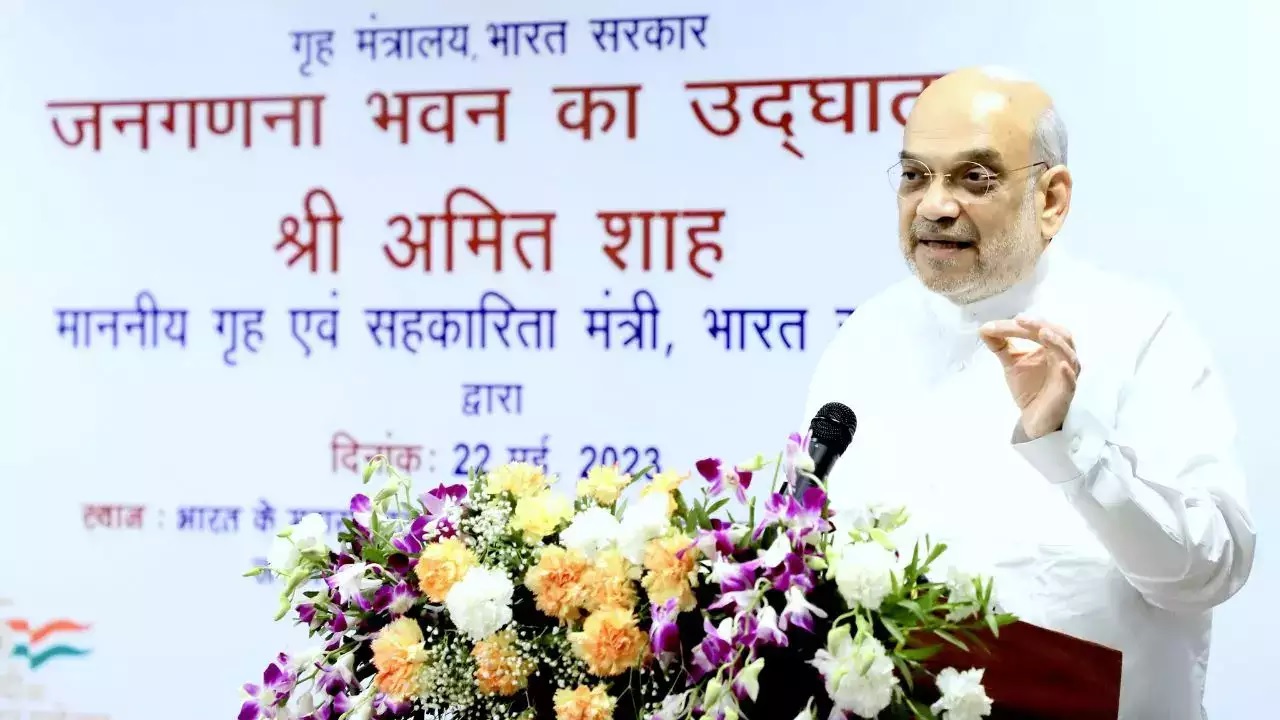Union home Minister Amit Shah, at the inauguration event of the new Census building has said that registration of births and deaths will be streamlined and be linked to electoral rolls as well as other key documents such as passports, ration cards etc.
It is pertinent to note that linking the registry of birth and death to Aadhar card has also been proposed by the government in the past. IN November 2021, the Ministry of Home Affairs floated proposed amendments to the Registration of Births and Deaths Act, 1969 which entailed a national database of records of births and deaths and linking Aadhar information to the same. The MHA had also expressed its intent to use this data to update the much opposed National Population Register (NPR). The Ministry had stated that the data will be used for updating NPR, Electoral Registers, Aadhar Database, Ration card database, Passport Database as well as the driving license database.
The Ministry has started again from where it left things in November 2021. At the inaugural event, Shah said that registration of births and deaths is important for updating citizens’ register, electoral rolls and list of people who avail beneficiary schemes, reported The Hindu.
What about the Census?
The description sounds quite similar to what a Census is supposed to be. 2021 was the year when our Census was due. However, the same could not be held on time due to the COVID-19 pandemic. However, with the pandemic long behind us, there is absolute silence from the government on when the Census will be conducted. The general elections are due for 2024 and the Union government has shown no political intent to conduct Census anytime before that.
Under the Census Act, there is no mandate or obligation upon the Union government to conduct Census every 10 years. The section 3 of the Act states:
3. Central Government to take census.—The Central Government may, by notification in the Official Gazette, declare its intention of taking a census in the whole or any part of the territories to which this Act extends, whenever it may consider it necessary or desirable to do so, and there upon the census shall be taken.
Shah did say during the event that previous censuses were not accurate and the government will now conduct the Census electronically so that the data can be audited and verified, reported The Hindu.
What the government plans to do
Shah has said that the Registrar General of India will be the authority for birth and death registration. The RGI is the nodal agency for Census and also implements Registration of Births and Deaths Act. Shah said that the RGI “will ensure that the Election Commission is informed by the related software, immediately after the death of a voter, and the due process to strike off his or her name can be adopted. The opposite can be done to include a new voter in the voter list as soon as he or she becomes 18 years old.”
A source from the government speaking to Hindustan Times disclosed, “The proposed amendments say that the birth and death registration data will be necessary for admission into educational institutions, issuance of driving license, preparation of voter list, registration of marriage, appointment in government jobs and for passports etc.”
Why is centralization of this data a problem?
The Centre has clearly stated that this data will be used for updating NPR, Electoral Registers, Aadhar Database, Ration card database, Passport Database as well as the driving license database. This means, the Centre will be able to track births, deaths,
The Centre will have a record of all the registered deaths and will use the same to update NPR which will in turn be used to make the nation wide NRC. However, the question arises, what about those births that are not registered?
Citizen for Justice and Peace’s experience working on the citizenship issue in Assam has led to the realization that out of people excluded from NRC, vast numbers were children because the parents could not provide their birth certificates. Children below 18 do not have voter’s ID cards and if they have not given class 10 or 12 board examination their only proof of birth in the country is the birth certificate and if the infrastructure for registering births is not robust in rural or remote areas, it is likely that a large chunk of population does not exist on paper for the government and there is no way for them to prove that they were indeed born in this country. Hence, if this data is centralized and used to update NPR and eventually the NRC, this population has no strong proof of citizenship and stands at the risk of becoming non-citizens or aliens in the country they were born in. This, in itself, is a potential grave humanitarian crisis.
Based on information received from 32 States/UTs, the share of institutional births to total registered births is 81.2 percent. This means that despite institutional births, there are loopholes whereby registration of births has been missed out.
Related:
Centralising record of deaths and births: Centre’s play at a future NRC?

